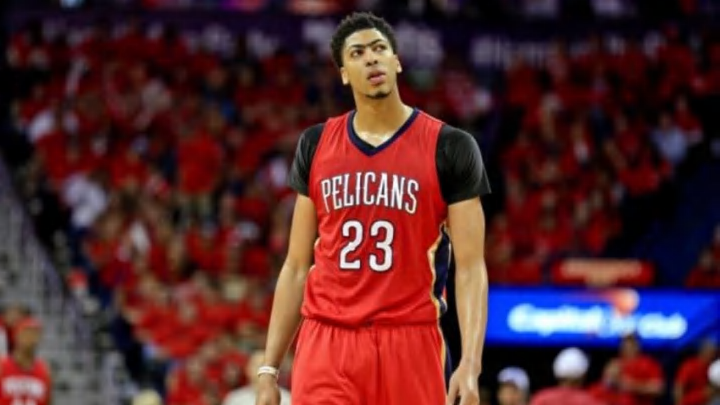Everyone knows and loves fantasy football. I mean, it is the quintessential Sunday male stereotype–a bunch of dads sitting on a couch, cracking a cold beer and watching football while checking on their fantasy teams.
But fantasy basketball is a little outside what we consider popular. Most people generally prefer fantasy soccer and fantasy baseball to basketball. I always wondered why, especially because I always had a blast playing with my friends and finding the best combination of players.
ALSO ON HOOPSHABIT: NBA Power Rankings: Best 30 SF of All-Time
Granted, I’d never joined a public league, which were always pretty competitive in fantasy football and baseball. I assumed basketball would be something along the same lines; this was something else entirely though.
More from Fantasy Basketball
- Fantasy Basketball: 5 players dramatically outplaying their draft position
- Dallas Mavericks: Is Christian Wood being underutilized by Jason Kidd?
- Fantasy Basketball: 4 Toronto Raptors who may soon make a huge leap
- Fantasy Basketball: 5 waiver wire pickups to keep your eye on
- Fantasy Basketball: 6 buy-low targets to help you win your league
I opened ESPN’s extensive list of public leagues and found a six-team league that would surely guarantee some stacked teams. What happened was an auction draft that definitely raised some eyebrows. While some drafters went for the even team draft, others went for a more unconventional route of drafting zero star players.
And sure, conventional ESPN rules may not be accurate, but customize-able basketball leagues are nothing short of questionable.
The problem I’ve found with fantasy basketball is the complete lack of evenness when it comes to scoring. There’s no substantial way to quantify assists or steals, or blocks even.
In football, there are markers, like every 10 yards, every touchdown, every point, etc. Basketball does have points, but beyond that, there are just so many stats that don’t really quite make sense. A point for a rebound, two points for an assist, the same amount for blocks and steals?
While advanced stats are on the rise for basketball, there is no simple way to measure the impact of each stat in a fantasy setting. In leagues that reward double doubles, players who stuff the stat sheet are often of far greater value than those who don’t.
A player like Rudy Gobert, who will surely be a double-double machine this year with several blocks per game, is more valuable than a pure scorer or a defensive stalwart.
Let me clarify: ESPN projects Rudy Gobert to be a more productive fantasy asset than both Carmelo Anthony and Marc Gasol.
The hilarity of it all is that being knowledgeable about the actual game of basketball doesn’t necessarily mean you’ll be a fantasy stud. In fact, fantasy basketball is all excel spreadsheets and number crunching. Sure, you can sit and predict who will have breakout seasons, but the right cocktail of players is more a numbers game than anything.
In leagues that minimize the impact of inefficient shooting and turnovers, Russell Westbrook is immortal. After thinking about the state of fantasy basketball for way too long, I’ve come to the conclusion that it’s just way too dependent on the rules of the league and box score production.
The impact a player has on the court cannot be measured or produced as well in fantasy, at least not at the level that football seems to do it.
Maybe it’s just one of those things that can never be fixed. And maybe it’s just better that way. Basketball is one of those sports you need to watch live to truly appreciate just how incredibly talented the players are.
Next: Stephen Curry: Top 10 Moments From His MVP Season
More from Hoops Habit
- 7 Players the Miami Heat might replace Herro with by the trade deadline
- Meet Cooper Flagg: The best American prospect since LeBron James
- Are the Miami Heat laying the groundwork for their next super team?
- Sophomore Jump: 5 second-year NBA players bound to breakout
- NBA Trades: The Lakers bolster their frontcourt in this deal with the Pacers
